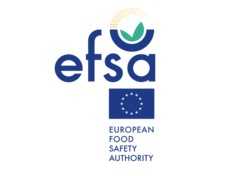Steering an Expert Knowledge Elicitation (EKE) in EFSA
One day
Beginner
Course details
Expert Knowledge Elicitation (EKE) in Food and Feed Safety Risk Assessment is defined as a systematic, documented and reviewable process to retrieve expert judgments from groups of experts in the form of probability distributions. EKE methods are formal, probabilistic judgement techniques designed to encourage thoughtful judgments and reduce psychological biases. EFSA Guidance implements EKE in an efficient, rigorous and transparent manner, targeted on most important parameters, subject to critical review at key decision points, and fully documented.
This self-paced training has four modules that consist of training materials delivered by the Lund University for EFSA, specially designed to help you understand the elicitation process.
Target audience
The target audience are EFSA staff, members of EFSA panels and the EFSA Scientific committee, members of EFSA working groups and networks, and corresponding experts from the member states all over EFSA’s remit, who would like to use EKE in quantitative risk assessments.
Important note: please be aware that the content may be challenging to follow for individuals without prior background knowledge in EKE. It is strongly recommended that such individuals first attend a basic training course on EKE, which will be offered as a 1.5-day on-site session at EFSA in the last quarter of 2024.
Fore more information on this event, please refer to: mese@efsa.europa.eu
Learning objectives
On successful completion of this course you will be able to:
- Recall the characteristics of EKE
- Explain the role and purpose of EKE in risk assessment and probabilistic expert judgements
- Identify and prioritise tasks in risk assessment suitable for EKE
- Frame a problem for EKE
- Identify, select, motivate and train experts for an elicitation
- Produce background information for an elicitation
- Select the appropriate elicitation method (Cooke, Delphi, Sheffield)
- Define the elicitation protocol, incl. adaptations, resources and selection of elicitors
- Document and interpret results; discuss and handle risks of elicitations
- Produce a complete documentation of an EKE
- Discuss handling of confidentiality during an EKE and issues of repeatability
EFSA is an agency of the European Union set up in 2002 to serve as an impartial source of scientific advice to risk managers and to communicate on risks associated with the food chain.

Schedule
- Welcome - Important notice: read before continuing
- Module 1 - Principles and problem definition: role of the Working Group
- Module 2 - The pre-elicitation phase: role of the Steering Group
- Module 3 - The elicitation phase: methods and role of the Elicitation Group
- Module 4 - Selecting the method & Post-elicitation



